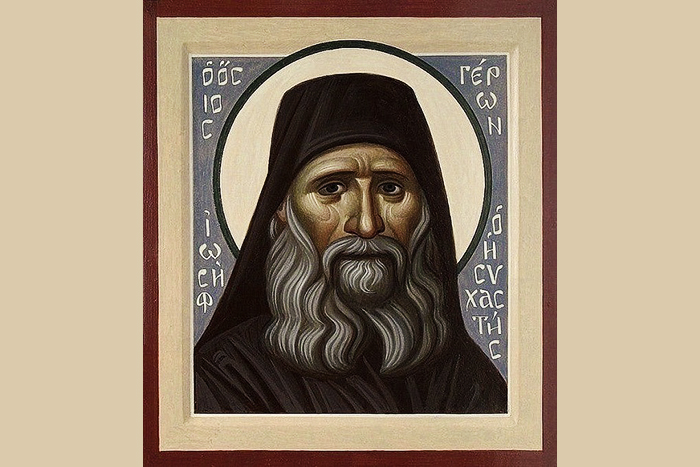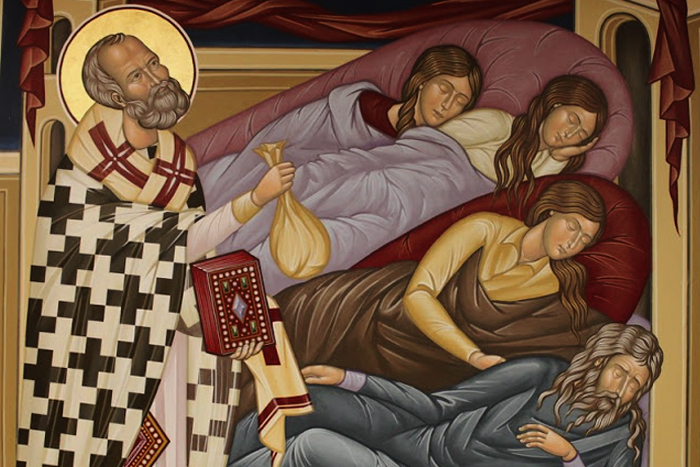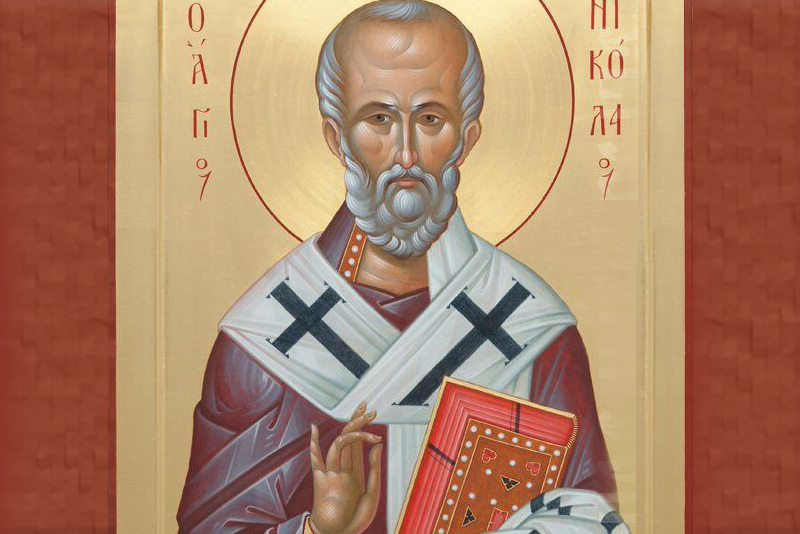
Every person grows. From the point of view of Orthodox theology, even the bliss of those saved in paradise is not static, but, as Saint Gregory of Nyssa says, this is an eternal ascent from glory to glory.
Similarly, wise and lightful people on earth are not in the same state all the time, but exist in a state of growth. This also applies to saints. Thus, Saint Joseph the Hesychast’s disciples recall that in the early years of his asceticism, the elder almost did not let any of them go to the doctors, believing that this was not appropriate for Athos monasticism. However, growing in wisdom, he changed his attitude towards medicine. Another old man, Joseph’s disciple, Ephraim of Arizona recalled how Joseph told him: “You are a sickly guy. You will need to consult doctors. Do not pay attention to how I treated this. You are weak. If you need a doctor and medication, consult a doctor. I could not learn this lesson all these years. Only now, in old age, I have learned it. Now nearing the end, I have realized that I need to be lenient. The student must always learn, as the wise Socrates said. You are children and need medical attention. Therefore, consult a doctor, take medicine and all that is necessary”.
In the same way, the attitude of the elder to the fasts changed. The more he grew in wisdom, the more he weakened the measure of fast for his disciples.
Initially, Joseph equated people with his measure and believed that everyone can bear the same thing as he, but over the years he realized that God has a different approach to every person. When disciples started following Joseph, his friend Arseny the Hesychast told him: “Not everyone is like you, Joseph!”
***
When someone joined the community of Elder Joseph, his first instruction was to urge oneself to Jesus prayer.
***
Joseph said that the new generation simply does not have the strength for the fast that the monks of past centuries performed. However, this does not matter, because it does not hinder perfection at all.
Joseph taught: “My child, say Jesus prayer — it will be the comfort of your life. Hold it and everything will run like clockwork. Hold Jesus prayer and you will succeed in everything”.
Of course, Elder Joseph constantly repeated that prayer is useless without kindness. Once, on appearing to Ephraim of Arizona from paradise after his death, Elder Joseph said: “My prayers are better heard, and it’s easier for me to pray when I intercede for people who force themselves”.
***
Ephraim of Arizona, the disciple of Elder Joseph, once was talking with a certain priest who came to see the life of the brotherhood of Elder Joseph. Surprised that the monks live in a very dangerous mountainous area, the priest asked why they did not leave. Ephraim answered that they learn to trust God and entrust their safety to Him. But the priest thought they were insane and left. And Ephraim realized then that there are different perceptions of the world; and that if a person does not look at life with living faith, he will not understand why sacrifice and why endure something to become real.
***
A few hours before his death, the elder Joseph Hesychast was attacked by great disbelief, and then it seemed to him that all his living sense of God, all the miraculous visits and revelations he experienced were nothing more than an illusion. The elder then said that at that moment the enemy had knocked out his faith from his heart and the whole building of his life was shaken. The elder was crying and praying – and the heavy temptation receded, and the living knowledge of God returned. Then Elder Joseph said that the Lord gave him a couple more days of life to tell those who experience such enemy attacks on faith that this horror can be overcome, for example, by prayer.
***
In the modern Church in the post-Soviet space, numerous church wise guys always strive to prick the elders and the institution of eldership as such, for example, to write something derogatory about the meaning of eldership. Although the practice of mastership was coeternal with the Church; and the apostles themselves were the first such holy masters. Wise guys cannot stand the elders because for the first ones it is unbearable to know that their contemporary can be beautiful and lightful. Because the authenticity of people like elders and poets crosses out the imaginary meaning of wise guys.
***
A low man assures others they are low as well. The ordinary one sees everyone ordinary and speaks a lot about the fact that Peter betrayed, and Matthew had not a good reputation, and Andersen wrote with misspellings, and Confucius was considered a fool in his home village… And only he who is truly great reveals to others the greatness that was originally put in them by Heaven.
So Elder Joseph the Hesychast answers one girl who confessed to him in a letter: “You’re very good! Do not worry! Do not despair! Be of good comfort! Do not be afraid!”. And he also writes this for her to feel she is significant for God who knows how to look at us in such a way that in this look we gain the strength to live and do good.
***
During World War II, Italy declared war on Greece in 1940, and there were hard and hungry times on Mount Athos. Then Elder Joseph, along with his disciple Elder Arseny the Hesychast, sold their undercassocks and vestments to be able to buy flour and feed the hungry. At this time, Joseph and his disciples wore sackcloth instead of clothes.
Joseph thought to feed the disabled is something precious. He said: “Everyone is welcome to the healthy, but not to the sick. It’s better we die ourselves, but we will feed them”. Together with Arseny, he took care of old men, choosing lonely and sick ones.
Ksenia Orabei recalls Joseph Hesychast’s mercy: “There were beggars who, after being fed, stole grapes from the elder. There was not enough grape, but Father Joseph was comforting the economic father Arseny: “Okay, father Arseny, people just wanted fruit after lunch”.
Once on the road, father Joseph picked up a novice with tuberculosis, who was expelled from everywhere as soon as they found out about his illness. He himself looked after him, asking the neighbors for figs and olives. And before his death, he was tonsured into a great schema; it is customary on Mount Athos. And he didn’t get sick”.
***
Elder Joseph and his disciples were treated badly often. They were accused of pride and delusion, and his knowledge of God was made a laughing stock. Joseph even asked his disciples not to tell others that he was their elder, so that they would not be humiliated by other monks and people.
Once Joseph was walking with Ephraim of Arizona along some Athos road, and a certain monk and a townsman came out towards them. Seeing Joseph, the monk shouted to him that he was deluded and vile and that he in general defiles Mount Athos with himself. Joseph did not answer and passed by, and the townsman said to the angry monk about Elder Joseph: “Maybe this person is deluded, but how reasonable he is…”
When Elder Joseph was scolded, he said to his disciples: “We will not argue. We will care about performing a vigil, prayer; and may they say what they want about us”.
After all, even among those who go to churches there are few who really know God. And such people terrify formalists with their knowledge so much that even Saint Gregory Palamas says that formalists are ready to accuse any lightful person who has a living sense of God and a living relation to Him in delusion and madness.
That’s why Christ taught to look at the fruits brought by people, because a bad tree does not bear good fruits, and vice versa.
The pages of the Gospel contain numerous accusations of Christ Himself by the formalists Pharisees – in insanity, lies, etc. His true disciples have to endure the same thing – their knowledge of God is not accepted by formalists, but it is something sought after and craved for by everyone who would like to come home.
Translated by The Catalogue of Good Deeds
Source: https://pravlife.org/ru/content/o-starce-iosife-isihaste



